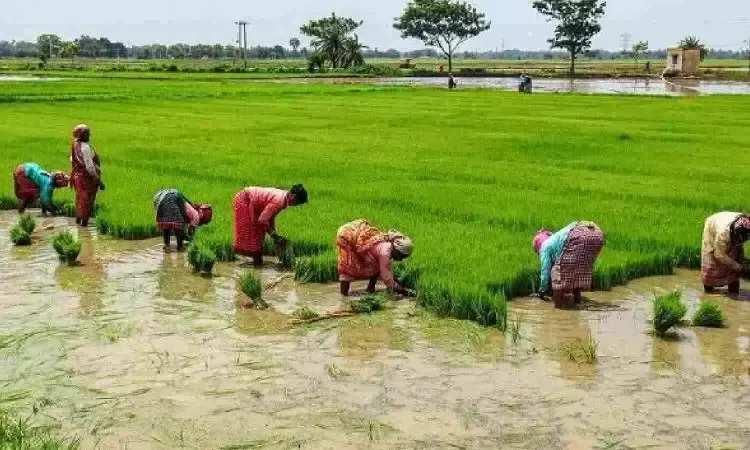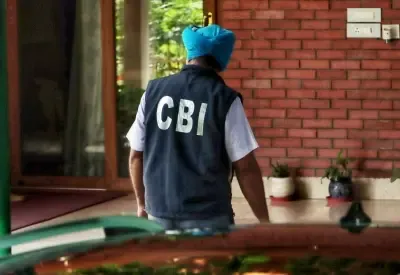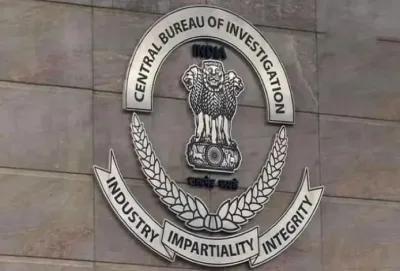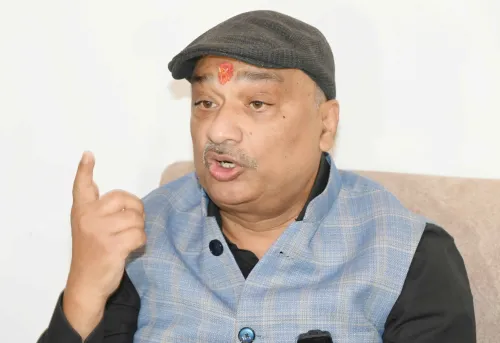Why Are Farmers in Madurai Distressed Over Falling Kuruvai Crop Prices?

Synopsis
Key Takeaways
- 20% decline in kuruvai crop prices affects farmers.
- Increased paddy arrivals from neighboring states contribute to price drops.
- Farmers prefer immediate cash over higher long-term returns.
- Insurance coverage for samba paddy is critically low.
- High moisture levels in paddy raise processing costs for millers.
Madurai, Nov 13 (NationPress) As the kuruvai paddy harvest concludes in Tamil Nadu's Madurai, farmers are facing a significant 20 percent decline in open market prices, with a 62-kg bag now selling for just Rs 1,400, down from last year's Rs 1,700. This price drop is particularly troubling for small and marginal farmers, despite a better yield this season.
Traders indicate that two main factors are behind this slump: an influx of paddy from Andhra Pradesh and Karnataka, and increased moisture levels in locally harvested grains due to untimely rainfall.
Rice mill owners remarked that paddy with higher moisture content needs to be dried for nearly two months, which significantly hikes processing costs. Consequently, the procurement price is lowered to compensate for these extra expenses. Furthermore, the availability of quality, dry paddy from neighboring states is also putting downward pressure on local prices.
In this season, kuruvai paddy was cultivated over 9,000 hectares in Madurai, similar to last year. As nearly 80 percent of the harvest has been completed, farmers estimate that about 20 percent of the total yield -- roughly 9,000 tonnes -- is being sold directly in the open market.
While Direct Procurement Centres (DPCs) offer Rs 25.5 per kg, traders in the open market are only paying Rs 23 per kg. At least one-fifth of the farmers, particularly small cultivators, opt to sell to traders despite the loss. They appreciate the instant payment and the convenience of avoiding the long wait associated with DPCs.
Many farmers, pressed to settle debts and pay labor costs, prioritize immediate cash flow over potentially higher returns.
This year, farmers reported a bumper harvest, yielding over 35 bags per acre compared to 30 bags last year. However, the price drop has nullified these benefits.
At the Mattuthavani Central Paddy Market, traders confirmed that prices have recently dropped by Rs 2.5 per kg, with approximately 4,000 bags traded daily.
Rice millers stated that well-dried paddy could still fetch up to Rs 27 per kg, but much of the current season's yield has high moisture due to sporadic rains. Compounding farmers’ concerns, only 48 percent of samba paddy in the delta region is insured under the PM Fasal Bima Yojana, with just three days left for enrollment.
Farmers reported difficulties in obtaining necessary documents as officials are preoccupied with the ongoing Special Intensive Revision (SIR) exercise.
The cumulative impact of falling prices, moisture-related deductions, rising milling costs, and insurance delays has overshadowed what should have been a prosperous harvest season.









